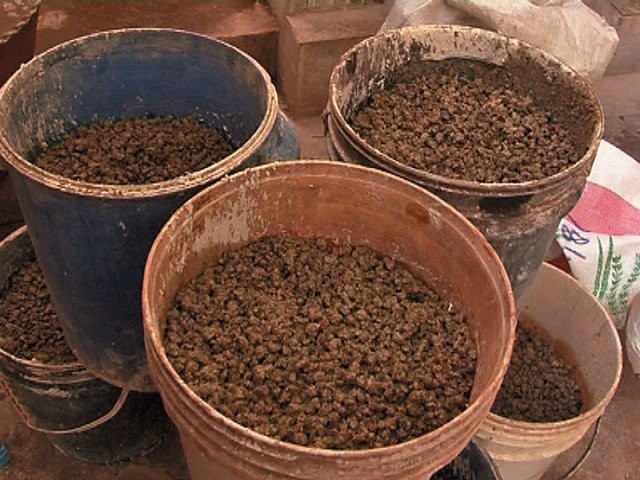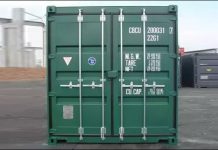The Sindh High Court (SHC) directed the relevant authorities on Monday to continue with the on-going crackdown on the manufacture and sale of gutka and gave the Sindh government till December 10 to develop legislation pertaining to the punishment for manufacturing and selling gutka.
A two-member bench comprising Justice Muhammad Iqbal Kalhoro and Justice Abdul Mobeen Lakho heard the petition filed by Advocate Muzammil Mumtaz pertaining to the crackdown against gutka manufacturers and sellers.
The health secretary and other parties appeared before the court. The health secretary informed the court that he submitted the records from 20 hospitals at the last hearing. He prayed the court to grant an extension for legislation while maintaining that his department has forwarded the summary for the matter. The court accepted his request and granted time till December 10. The court also sought reports from all parties at the next hearing.
Earlier, the SHC had issued a written order on the petition and had directed the Rangers to curb the buying and selling of gutka. The court, in its written order, had stated that due to the failure of the law enforcement agencies (LEAs), crime rates were increasing. The order stated that despite the court orders, a proper crackdown against the gutka mafia was not launched while 17,000 tonnes of seized gutka was being shown as 6,000 tonnes.
The court had termed this alarming and stated that there was a need for investigation when police officers enjoyed a lifestyle that wasn’t in accordance with their salaries. “We should take heed from the life of Hazrat Umar Farooq,” it had stated. The court had also issued orders to curb the smuggling of gutka at check-posts of the city while directing the LEAs, including the Pakistan Security Guard, to beef up security on the borders of the country.
Besides, the court had directed all the Rangers director general to extend complete support to the police and other agencies and ensure that gutka and other injurious items were not smuggled into the city. The court had also directed the provincial government to formulate legislation for the punishment for manufacturing, selling, and buying gutka, and had directed the Sindh IGP to take action against police officers involved in the sale of gutka.
Bail pleas Meanwhile, a two-member bench comprising Justice Omar Sial and Justice Zulfiqar Ali Sangi sought arguments from the National Accountability Bureau prosecutor after lawyers of Sindh Assembly Speaker Agha Siraj Durrani and other accused completed arguments on the bail pleas of the accused in the case pertaining to assets beyond means.
The court inquired about the role of Zulfiqar in the case and the NAB officials said that Zulfiqar is a government employee but works for Durrani. They informed the court that pay orders worth Rs50 million were issued in the names of Durrani’s employees and all these pay orders were utilised towards the payment of fees and purchase of flats for Durrani’s children. A verbal altercation ensued between the NAB prosecutor and the lawyers of the accused during the hearing.
The court remarked that the matter would not be sorted if such a situation persisted. Durrani’s lawyer, Amir Naqvi, said in his arguments that his client was under arrest while his brother Agha Masihuddin was on interim bail. He said that it took years to establish a person’s innocence and they were kept in jail for years till it could happen. “Corruption will not be eliminated by calling everyone a thief. Did corruption end with the establishment of NAB?” he asked.
The counsel added that NAB had always maintained that locating white-collar crimes was very difficult. Durrani’s lawyer argued that basic human rights were being violated and asked how corruption was controlled by making this law in 1999. “Cases must be made according to the law. The country is in a strange situation. No one can understand what is going on,” he said.
The counsel raised questions on how NAB was carrying out the investigation, arguing that the anti-graft watchdog never went to the land it was mentioning. Meanwhile, Durrani’s alleged frontman, Gulzar’s lawyer Naeem Malik argued his client was well known not just in Pakistan but also abroad and that his client’s financial position was stronger than Durrani’s. Malik informed the court that his client was the owner of Rehmat Shireen which has branches not just in Pakistan but also abroad.
Justice Sial inquired from Agha Masihuddin about his income and ownership of assets. Masihuddin stated before the court that there was a total of 7,000 acres of ancestral land as well as a petrol pump, house, and other properties. He said that not all the properties were benaami assets and that he had given a written reply answering all of NAB’s questions but the bureau had not toured the lands, factory or the petrol pump. The lawyer for Masihuddin stated that the 7,000 acres of land were in the names of all the brothers and the family.
Income was generated from the lands and the shops while 400 houses were given on rent in Garhi Yaseen. He added that there was a fish farm as well which was established on 300 acres of land and there was also land in the names of the children. The court inquired why these documents were not submitted earlier. To this, Masihuddin replied that they had given everything but NAB did not investigate from anyone. The court expressed anger at the NAB prosecutor and remarked that NAB should have first read the Supreme Court’s decision and should have come to the hearing prepared. After the completion of arguments by the lawyers of the accused, the court adjourned the hearing while seeking arguments from the NAB prosecutor on November 25.
Published in The Express Tribune, November 19th, 2019.














